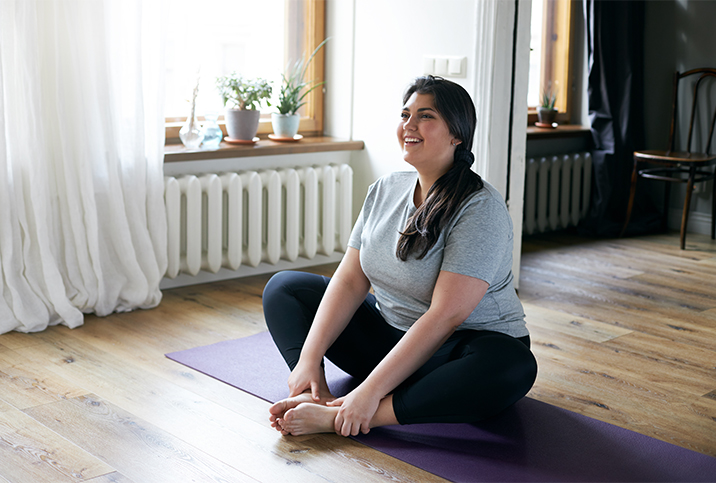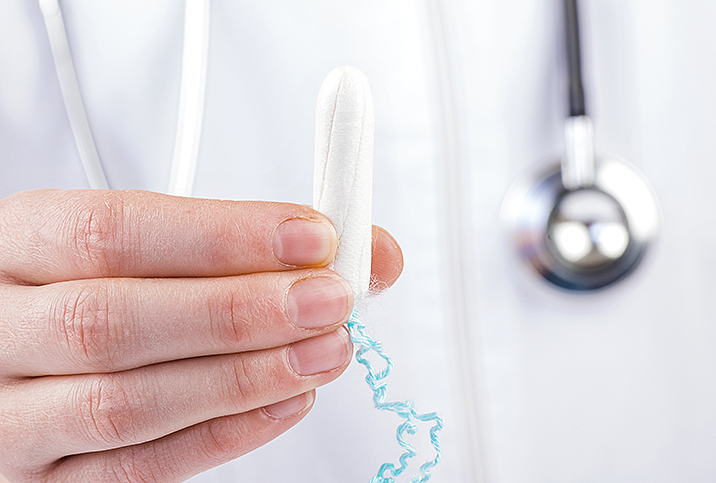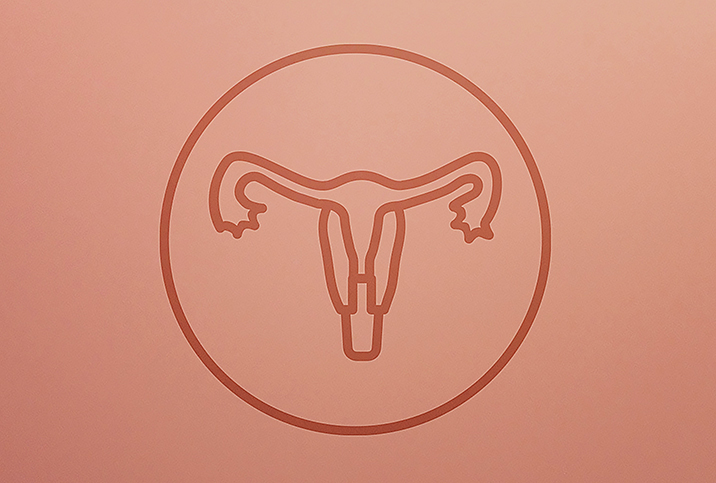How to Prepare for a Pap Smear if You Have Vaginismus

Editor's note: Some of the sources for this article requested their full names and locations not be used.
"It's uncomfortable but not painful." During my senior year of college in 2014, I walked into my OB-GYN's office with those words in mind. My doctor explained she would be using the smallest speculum possible for my Pap smear and then told me to lie back. I wasn't even nervous.
However, when she inserted the speculum, it felt like she was putting a knife into my vagina. My doctor told me to relax. Even though it was incredibly painful, I choked out, "It hurts." I got through the first exam, but each time after, I began to get anxious and shaky leading up to it, knowing what I would feel. For years, I didn't have a word for my pain, which, ultimately, was a diagnosis of vaginismus.
Vaginismus is a condition where the vaginal walls contract automatically when penetrated. It can make a routine procedure a dreaded, painful experience. Preparing for your Pap smear by communicating with your doctor, learning what works for you and your body, and advocating for your health can help make the experience less intimidating.
Discuss expectations prior to your Pap smear
Before you lie back on the exam table, talk to your doctor at a separate appointment about what happens during your Pap smear. You can still ask during your Pap smear appointment, but you might find yourself more clear-headed without the anxiety of the procedure in the mix.
"It is OK to share with your healthcare provider if you are nervous or worried about the exam and if you have a diagnosis or concern for vaginismus," said Natasha Ramsey, M.D., an adolescent medicine doctor in New York City and founder of sexual health platforms Gorjus Doc and Gorjus Sex Ed.
Ramsey talked about other possible options for collecting samples aside from a Pap smear, including self-swabbing and urine samples.
Tell your doctor how they can help you during your exam. Ask them to explain the procedure as they go, slow down or have someone with you during the exam for support. Even if you've never had a Pap smear before and are worried about pain, tell your doctor so you can both prepare for that possibility.
"I felt strongly concerned that I would experience pain during [a Pap smear], and I brought this up to my PCP and my OB-GYN," said Alaina, a Boston-based nonprofit worker who experienced severe pain with her first Pap smear.
Before the procedure, Alaina said she had a conversation with her OB-GYN and talked to her PCP about whether the test was medically necessary for her. Your medical history may affect how often you undergo a Pap smear, and you should discuss this with your doctor to avoid unnecessary pain and anxiety.
Your body and vaginismus
Coping with vaginismus is not always as simple as breathing the pain away. But it's worth exploring different ways to calm yourself before and during your appointment. This looks different for everyone, so it's important to get to know your body.
"Think about what helps you to manage your stress and try to incorporate that into your day and during your visit," Ramsey said.
For me, wearing comfortable clothes and taking a few minutes in the car and in the waiting room to do a body scan and take deep, slow breaths help. It's not a magic solution, but I've noticed a big difference between the appointments where I did this and the ones where I forgot. Other people might find some relief by playing music, squeezing stress balls or keeping warm to prevent tension in their body. It can help to focus on something else, such as counting tiles, wiggling your toes or talking to your doctor.
You know your body better than anyone
Your doctor shouldn't make you feel pressured or anxious about your care. Advocate for yourself and find a doctor who will do the same. When you have vaginismus, an empathetic, supportive doctor changes the game.
"I think that professionals need to do a better job being proactive and asking good questions of their patients and making medical settings a safe space where patients can ask anything they want to know and raise any concerns they have," Alaina said.
She said the burden of receiving proper care often falls on the patient. For some people in minority communities, the burden goes beyond talking to their doctor and using calming techniques in the exam room.
"We cannot forget that while I am advocating for open communication with [healthcare providers] and access to sexual health education, that this is a luxury for many and often not a reality for BIPOC and LGBTQIA+ individuals," Ramsey said. BIPOC stands for Black, Indigenous and people of color.
She said marginalized communities have lower Pap smear and cervical cancer screening rates due to barriers such as accessibility, discrimination and policies that don't allow people to get the care they need.
When it comes down to it, you know your body and your health better than anyone. You deserve care that fits your needs and is carried out by a provider who listens to you. Your health is about you, and Ramsey said it best: "If your healthcare provider is not able to answer your questions or partner with you in your health, you may need to find a new one."


















